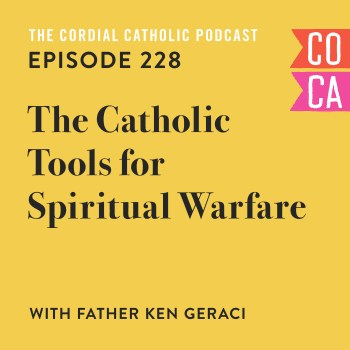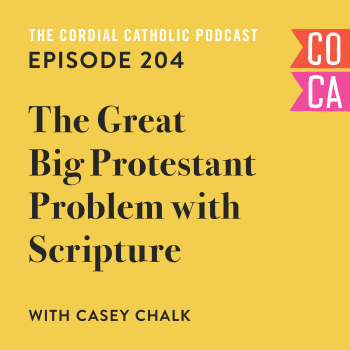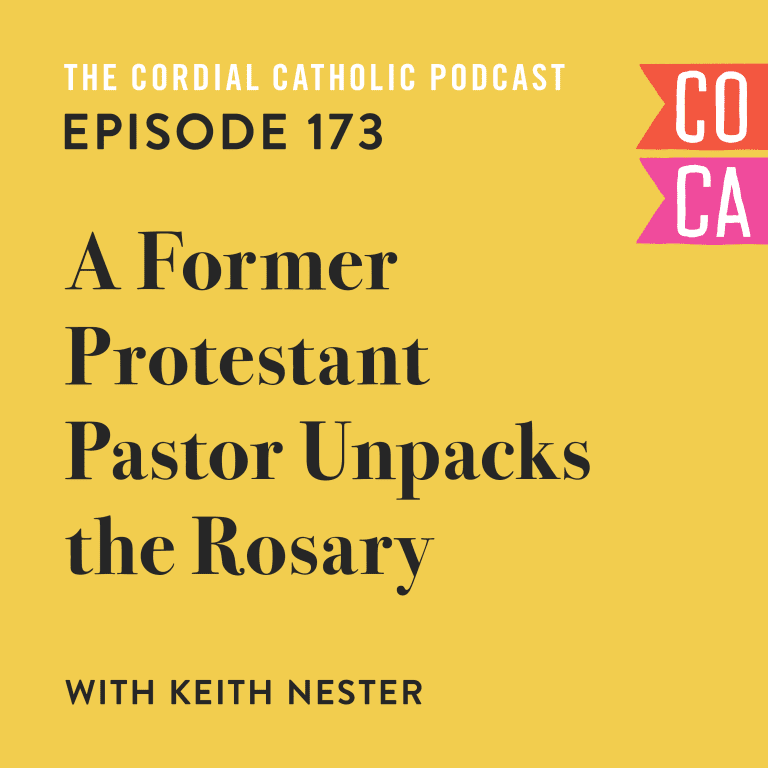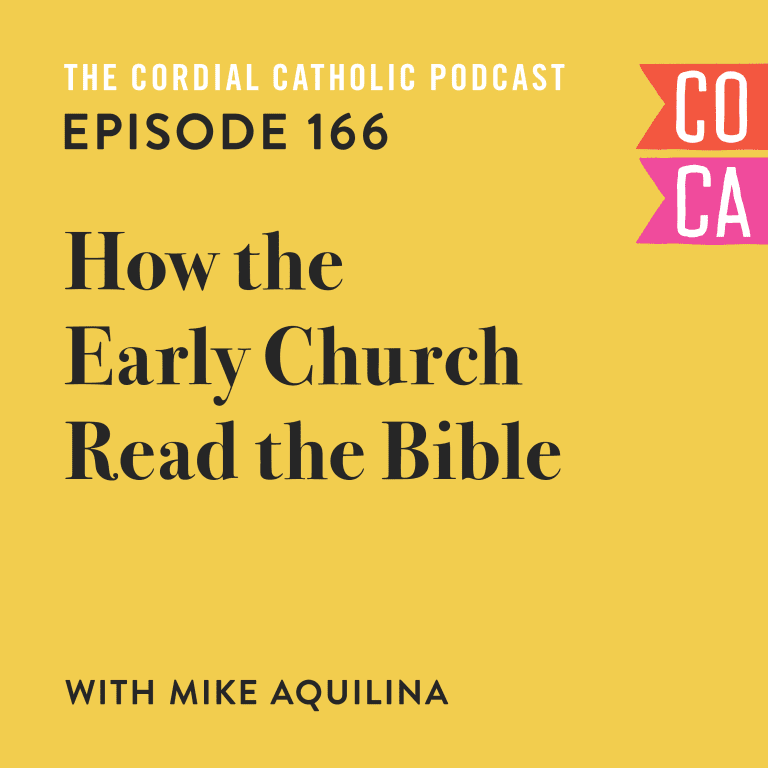
I tore a hole in my brand new coat.
My brand new coat.
We are by no means poor but we are thrifty and conservative with our spending so a new coat, which I haven’t had in years, was a source of some excitement for me. I loved the feeling—the thrill—of something new to wear; I was happy.
And it happened in a flash.
Our son, a fussy nearly-two-year-old, was throwing a bit of a tantrum when I wouldn’t let him hold the screwdriver. The screwdriver I was trying to use to assemble his new bubble lawnmower, a gift from his grandparents for Easter. A gift, I should add, that he’s since completely obsessed with—but it cost a coat in the process.
After repeatedly trying to grab the screwdriver out of my hands I finally, and somewhat exasperatedly, stuck it into my back pocket and out of his sight, and reach. And when I bent over to clip the final piece of the lawnmower together that’s when I heard the fateful riiiiiiiiiiiiiiippppppp.
The sharp tip of the screwdriver tore a straight line in the fabric of the coat.
My brand new coat.
There was no going back.
Maybe you know the feeling well, I do: that sensation immediately after something horrible happens and you know you’ll never be able to take it back, that something terrible has just changed forever. Thankfully, I haven’t had it that often. Once when I fractured my arm doing a stupid skateboard stunt as a teenager. Once, as a kid, when I went off a ramp on my bike—I was in mid-air when the realization struck. Once, while using spray insulation, I thoughtlessly put the canister down on a rug and it dripped. (For the record, spray insulation is impossible to get out of rugs.)
In some of these cases I learned an important lesson: Skateboarding isn’t my thing. Don’t go over ramps that are too big for you. Be liberal with the drop cloths when doing any kind of home repair.
But sometimes the lesson to be learned, or the value of a stupid mistake, is hidden somewhere deep within.
Sometimes bad things just happen.
And I think of two things.
First, that these problems are decided not problems in the bigger scheme of things. In the global context of war, famine, poverty, and homelessness my tiny problems are about as important as that spelling test you took in third grade. They’re minuscule. But to say they’re entirely unimportant is to rob them of their value altogether because they are still problems—tiny problems—and they must, if all things work together for good (as God says they do), have some kind of meaning even if they’re tiny in comparison.
That is, they’re my problems and they’re real, and important, to me even if I sometimes could use a reality check.
And, second, I think of Job.
The Book of Job, in the Old Testament, is such a rich treasure trove of knowledge I’m sure it could be, and has been, mined for lifetimes and still continue to produce new and important ideas. It’s certainly worth a read but, in a nutshell, it goes like this: Job has everything, God takes everything away from Job without any real explanation, Job demands an explanation, God says, “I am God, who are you?” and Job is decided humbled.
In the epilogue, my favourite footnote in the Biblical narrative, Job gets everything back—twice what he had before, and lives to be a very old man.
The lesson in Job, which is a lesson for all of us, is that things just happen and God is bigger than all of that and who are we to really know what’s going on.
In the first 37 long chapters Job pours his heart out God. He laments all the wrongs that have happened to him as God takes thing after thing away form him. He complains to his friends (who give him decidedly mixed advice). He moans and groans and, no without cause, sees himself as having been the victim of the most awful circumstances.
And, truly, he’s got a point. He lost everything and nothing seems to make any sense.
But, finally, in chapter 38, God speaks out of a storm, and his response is nothing short of epic.
Who made the world? God asks, who controls the seas? The stars? The wind? Who makes things grow and controls the seasons? Who knows when the smallest of things takes place on the earth? Who knows when the goat gives birth on the mountain? Who gave the horse its strength? The hawk its sight?
In other words, who is God but God?
The narrative is truly gripping.
And then Job responds. After 37 chapters of groaning and complaining and lamenting his situation it takes only six short verses to say exactly what we should say in the face of any, and every, possible situation,
I know that you can do all things;
no purpose of yours can be thwarted.You asked, ‘Who is this that obscures my plans without knowledge?’
Surely I spoke of things I did not understand,
things too wonderful for me to know.You said, ‘Listen now, and I will speak;
I will question you,
and you shall answer me.’My ears had heard of you
but now my eyes have seen you.Therefore I despise myself
and repent in dust and ashes.
Job says, in other words, You are God. You’re right. And me, I’m merely dust and ashes.
I lament, still, my stupid torn coat. The admittedly little rip is a daily reminder of a stupid, thoughtless mistake. Something I couldn’t and didn’t control and, frankly, something that happened which I can’t really understand.
Why did I have to rip my new coat? I love my new coat, and that rip makes me miserable, but who am I anyway?
I didn’t make my hands which do the work so that I can get paid and buy a new coat.
I didn’t set in motion this world, place myself upon it, and bestow so much wealth and safety and happiness upon me and my family.
I didn’t do anything to deserve everything that I have; I can’t, ever, merit this wonderful life.
I ripped my coat and I don’t know why but I am merely dust and ashes, trusting, like Job, in the Almighty God.












